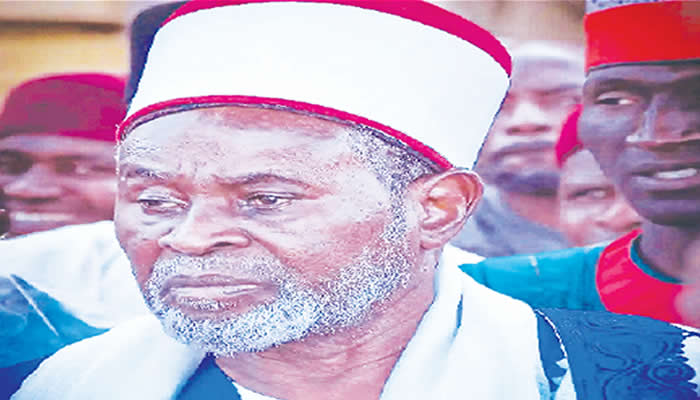Paragraph 1: The Context of Peacebuilding in Potiskum
Potiskum, a historically significant city in Yobe State, Nigeria, faces a unique challenge to peace and development due to a longstanding rivalry between two First-Class Emirs, both claiming legitimacy. This historical conflict, rooted in the colonial legacy, has fueled persistent tension and rivalry, hindering the city’s progress. Recognizing the urgent need for peacebuilding and reconciliation, the Yobe State Hisbah Commission organized a one-day engagement with religious leaders, women, youth, and security agents to discuss strategies for fostering peaceful coexistence. Dr. Suleiman A. Jaji, the Talban Potiskum, contributed his expertise to this critical discussion, emphasizing the importance of understanding the historical context of the conflict to achieve lasting peace.
Paragraph 2: Historical Roots of the Conflict
The conflict in Potiskum stems from the colonial era’s impact on traditional power structures. The imposition of colonial administration disrupted existing power dynamics, leading to the emergence of competing claims to authority. The resulting rivalry between the two emirates has persisted for over a century, creating a climate of unease and hindering the city’s growth. While both Emirs claim historical legitimacy, Dr. Jaji points to a more substantial historical basis for the Potiskum Emirate’s claim. This historical ambiguity has perpetuated the conflict and necessitates careful examination to forge a path towards reconciliation.
Paragraph 3: The Imperative of Peace and Reconciliation
Dr. Jaji underscores the critical importance of peacebuilding, tolerance, and reconciliation in Potiskum, particularly in light of the devastating Boko Haram insurgency that has ravaged the region. He argues that the city’s historical and political context necessitates a comprehensive approach to peacebuilding, going beyond superficial discussions. The engagement organized by the Hisbah Commission, though commendable, requires further in-depth analysis and sustained efforts to address the root causes of the conflict. The presence of two First-Class Emirs in the same city represents a significant security concern that demands immediate and sustained attention.
Paragraph 4: The Significance of Potiskum and its Stunted Growth
Potiskum holds significant political, historical, and economic importance within Yobe State and the broader Northeast region. Historically, it is considered one of the oldest cities in the area, boasting a vibrant commercial center and a strategically important cattle market. Despite this potential, Dr. Jaji argues that the city’s development has been hampered by the century-long chieftaincy conflict. He compares Potiskum’s progress to that of peer cities, highlighting the disparity and suggesting that the unresolved conflict has diverted resources and energy away from development initiatives. The presence of influential figures from Potiskum in national government hasn’t translated into comparable development, further underscoring the detrimental impact of the ongoing conflict.
Paragraph 5: The Concept of Peace and Mutual Coexistence Applied to Potiskum
Dr. Jaji defines peace as encompassing inner calm, harmonious relationships, and the absence of violence. Peaceful coexistence, he explains, refers to the non-violent interaction between individuals and groups with different backgrounds. Achieving this requires acknowledging diversity, promoting social inclusion, and fostering empathy and understanding. He argues that justice is a fundamental prerequisite for peaceful coexistence and that without it, societal development is severely constrained. While the Hisbah Commission’s workshop addressed important issues like drug abuse and youth welfare, Dr. Jaji believes it fell short of fully addressing the core issue of reconciliation between the two emirates.
Paragraph 6: Recommendations for Sustainable Peace
Dr. Jaji stresses the need for a more in-depth and sustained engagement with the historical context of the conflict in Potiskum. He calls for further discussions that directly address the root causes of the rivalry between the two emirates. A comprehensive approach should include strategies for conflict resolution, inter-community dialogue, and fostering mutual understanding between the two communities. Furthermore, he emphasizes the role of justice and equitable resource allocation in promoting sustainable peace. Resolving this historical conflict, he argues, is essential not only for the development of Potiskum but also for the stability and prosperity of the wider region. The Hisbah Commission’s initiative represents a valuable starting point, but sustained efforts and deeper engagement are crucial for achieving lasting peace and unlocking Potiskum’s full potential.














